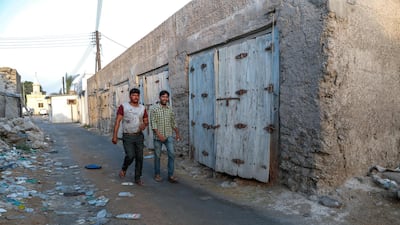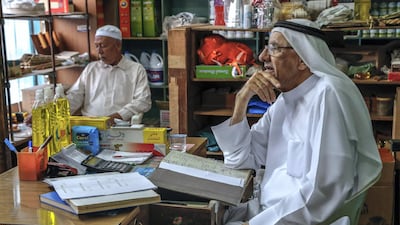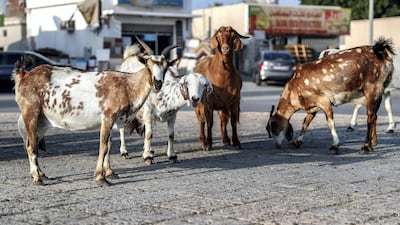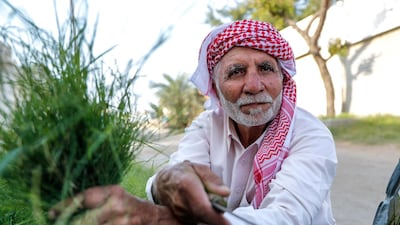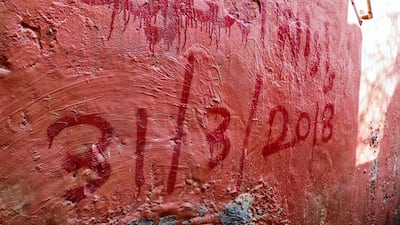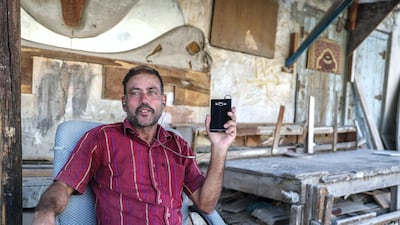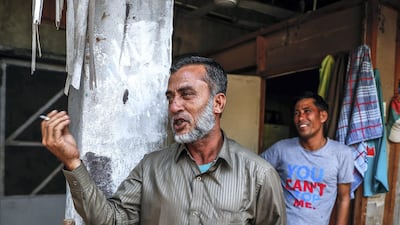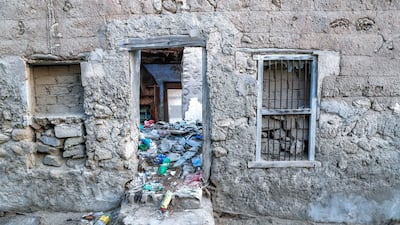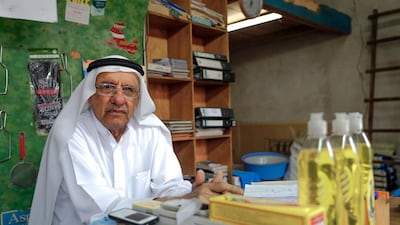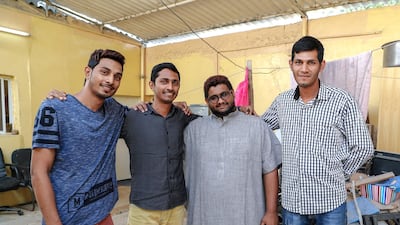Abdulla Kamaluddin’s house was was once at the centre of a crowded quarter of Umm Al Quwain’s old town. Now it stands alone, the land flattened around it. Redevelopment of the area has begun, with hundreds of houses marked for demolition. His is the last house standing in the eastern quarter and the writing is on its wall – the demolition date: 31/03/2018.
“We are already packed,” said Mr Kamaluddin, an 18-year-old who works at his father’s metalworks company. “We are waiting.”
Umm Al Quwain’s old city is a derelict and charming place of oleander and jasmine, littered alleyways, chicken and pigeon coops, rusted satellite dishes and streetside sofas where neighbours sit in the late afternoon.
Its redevelopment comes amid a push for modernisation in the emirate, which has a population of less than 80,000 and accounts for less than 2 per cent of national GDP. The downtown has spacious new government buildings, a mall under construction and a two-storey Starbucks that stays empty as people head to coffee houses overlooking the sea.
Development has shifted inland over the years. Emirati families have migrated from coastal towns to desert suburbs like Al Ramlah and Al Salamah, growing residential communities in the desert on either side of the E11.
The one-storey courtyard houses of the old town were built in the 1970s and 1980s and are rented by labourers and low-income families who pay Dh1,000 to Dh2,000 a month. It is one of the cheapest places to rent in the country. Although its residencies are viewed as temporary, some foreign families have lived there for generations. Most Emirati families have long since moved on.
The eastern quarter is the first to be demolished. Mr Kamaluddin’s father bought his house after he arrived from India, 40 years ago. They were informed of the decision five months ago and the family will be compensated with property elsewhere. “My friends are here and my childhood is here,” he said. “So every one of us is a little bit lost.”
The old town is on the tip of a peninsula, surrounded by sea and mangroves. No residents interviewed knew of its future plans. Some said it will be turned into hotels, others into developments that rival the Jumeirah Lake Towers or the Dubai Marina. The Umm Al Quwain municipality and the Executive Council declined to comment.
In 2011, the UAQ government launched a diversification strategy centred on heritage and eco-tourism. The old town's heritage buildings include the 18th century museum and coralstone and sandbrick buildings, which will be conserved in the redevelopment.
Residents are resigned when asked about their own future.
“I mean, I’m not a citizen of the country. I’m renting,” said Gulam Rasool, 57, a resident who lives with 20 members of his family, including children and grandchildren. He has lived in the area for 45 years.
Not everyone is content. Wherever people move, rent will double. “I’ve lived here 31 years,” said Abdulkarem Konai Miah, 48, a construction worker from Bangladesh. “There were Arabs here first, and then there were the poor.”
Mr Miah and his brothers moved into this house earlier this year when their last residence was demolished. Humble decorations make it into a home. Vines shade the courtyard. A bed’s mirror headboard and prayer mat are fixed to its outside wall for decoration.
“If you lived anywhere else five or ten or twenty years, Europe, Canada, Australia, you’d have citizenship,” said Mr Miah. “I do not. I should have citizenship but in the UAE, no.”
He will move again once demolition reaches this quarter.
______________
Read more:
The gentle buzz from a deserted village
Ras Al Khaimah tribe return to abandoned village
Photoessay: Al Rams, a community facing an uncertain future
______________
Souq shopkeepers expect demolition at a later date. “We don’t know when it will happen,” said Mohammed Ahmed, a general store owner in the old souq. “I mean they’ll do it, but when?”
Mr Ahmed’s father passed away four years ago and he has since been clearing out stock. Neighbours chat with him as he sits at his father’s desk, settling old accounts. He sits amid what’s left of the stock: bottles of dish soap, cartons of crisps, toothbrushes, tea, sickles, and brooms made of date frond.
Mr Ahmed shows no nostalgia for the past. “For me, I don’t want a thing.”
After all, even the old town was once new. About 200 years ago, people moved here from Al Sinniyah Island after the fresh water ran out. A fort was built in 1768 and the town grew around it.
“Praise be to God, God is all knowing and work goes on,” said Saif Awwad, an Emirati resident in his fifties who was born and raised in the neighbourhood. “If the houses are torn down, God will provide.”
